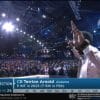While imitation may be considered flattery, it hardly means much in a court of law, especially if the imitator is trying to profit off one of the most popular stories in the world.
Demetrious Polychron, a writer based out of Beverly Hills, learned this lesson the hard way after losing his $250 million copyright lawsuit against Amazon and the estate of JRR Tolkien, author of the Lord of the Rings.
After self-publishing his unofficial Lord of the Rings sequel, The Fellowship of the King, Polychron accused Amazon’s The Rings of Power of infringing on his novel.
Ignoring the possibility that Polychron was on to something, it would not have made a difference legally, as Polychron himself has indicated his fanfiction was meant as a legitimate continuation, not a parody or satire, meaning that in the eyes of the law, it would not be protected under fair use.
The Penalty
The case was litigated for seven months, but the dismissal was predicted by YouTube user Tolkien Lore around the time the case opened.
He went on to say, “I suspect what’s going to happen is this guy’s going to end up with nothing [and] may even have to pay Amazon’s legal fees.”
Sure enough, that’s exactly what happened. Once the case was dismissed, the court awarded Amazon and the estate about $134,000 for their legal fees.
The estate then proceeded to successfully countersue, forcing Polychron to cease publication and distribution within 10 business days from the ruling. Consequently, The Fellowship of the King was delisted from Amazon and Barnes and Noble’s website, however, as of this writing, it is still available for digital purchase on Google.
Since the ruling, the website for Polychron’s publishing company, Fractal Books, has been out of service. Looking at the archives, the website went offline as of Oct. 30.
Aside from publishing Fellowship of the King, Fractal was set to publish authors Kurt Ivy and David Taliaferro upon completion of their respective novels, as well as Polychron’s future projects.
Without the website, it can be assumed the projects are on indefinite hiatus. It’s a shame, too, because from what little information is available, Fractal was attempting to launch a wholly original literary universe.
Which begs the question, why attempt to profit off the Lord of the Rings brand in the first place?
Good Intentions, Misguided Execution
As a die-hard fan of Middle-Earth lore, Polychron thought the franchise left a lot of room to expand, especially given modern sensibilities.
In a video uploaded to his YouTube channel, Polychron expressed how he saw the lack of diversity among the cast as an issue. However, he also believes this was most likely a product of the times Tolkien lived in.
“Remember, he grew up in the turn of the century, and women didn’t have the right to vote in England or the United States, and there wasn’t a lot of representation in places of power and influence for him to draw on,” Polychron said.
With this in mind, he tailored his book towards rectifying this, as his main cast consists of women, LGBTQ+ people and non-Europeans, as opposed to just straight European-inspired characters like the original work.
It wasn’t difficult, as Tolkien already conceptualized Middle-Earth counterparts of African and Asian societies in his writings. One notable example was the kingdom of Harad, which Tolkien based off of ancient Ethiopia.
While he wanted to remain faithful to the spirit of the books and its lore, the part where Polychron overstepped was how he decided to distribute his work.
“My whole life growing up, my whole life as a writer, I heard the book that you should write is the one that you most want to read,” Polychron said. “And this was the book that I most to appear on the shelf of a bookstore.”
To do this, Polychron needed the approval of the Tolkien estate, so naturally, he tried to get in contact with them.
According to a court document obtained by Deadline, Polychron wrote to the Tolkien estate in 2017, explaining his intentions to make the best story possible while respecting the canon Tolkien laid out.
Polychron also admitted he should not have written the book, but he could not help himself. “Once the inspiration came, the hardest part was over,” Polychron said.
When they did not respond, Polychron reached out two years later, going so far as to personally deliver a copy to Tolkien’s grandson Simon, which he allegedly returned without bothering to read.
Soon after, the estate began sending him cease-and-desist letters, but Polychron went ahead and published the book anyway.
Had he distributed the story for free online, Polychron’s story would have been somewhat more protected, though this is not always a guarantee. But Polychron sold his novel for $18 dollars per digital copy, so the court had no other recourse but to erase any and all traces of it.
Was there even a case?
Ignoring the fact that he was unable to gain the Tolkien estate’s blessing, how much did Rings of Power actually resemble Polychron’s story?
According to those who read the book and watched the show, not much at all.
In the aforementioned court document, the court found that even “if [Polychron’s] work were not an unauthorized derivative, he… failed to plausibly plead that Rings of Power infringes his work directly.”
At the end of the day, it does not matter so long as the IP holder can determine how their property is adapted.
As it currently stands, Tolkien’s work is set to enter the public domain in 2024, however so long as Amazon shares the global television rights with the estate and Embracer Group holds the worldwide exclusive rights, it remains to be seen if that will come to pass.














